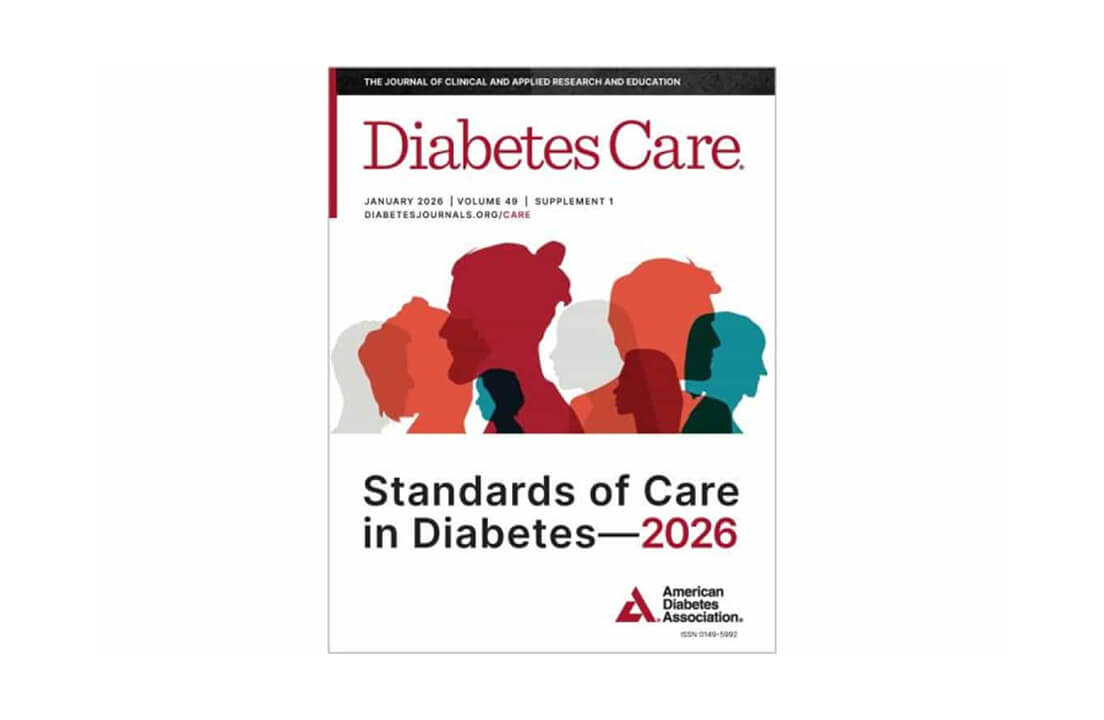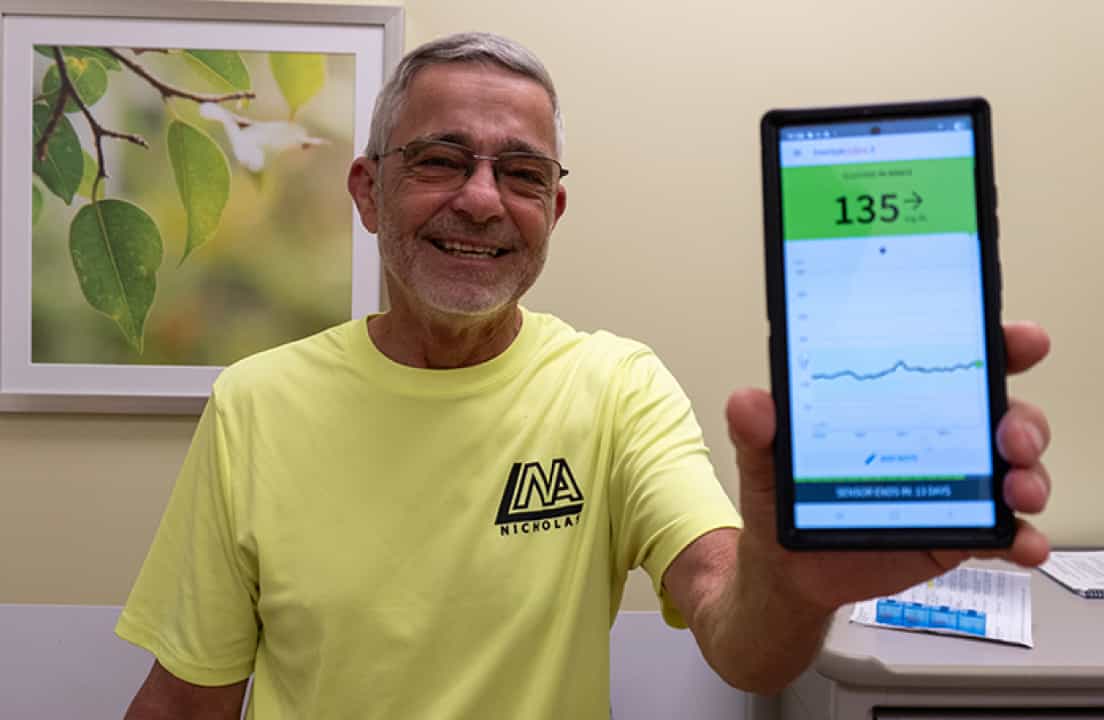T1D Guide
T1D Strong News
Personal Stories
Resources
T1D Misdiagnosis
T1D Early Detection
Research/Clinical Trials
Taking Charge of Heart Health with Type 1 Diabetes
Living with type 1 diabetes (T1D) doesn’t mean your heart health is out of your hands. While it’s true that people with T1D have a higher risk of cardiovascular issues, including heart attack, stroke, and other complications, there’s good news: these risks can be reduced.

According to the American Diabetes Association (ADA), cardiovascular disease (CVD) remains a leading cause of death in people with diabetes. But no matter your age or A1c level, there are proactive steps you can start taking today to protect your heart and support long-term wellness.
The Connection Between Type 1 Diabetes and Heart Disease
What is Cardiovascular Disease?
In broad terms, cardiovascular disease encompasses various conditions that affect the heart and blood vessels. These include:
- Heart attack
- Stroke
- Heart failure
- High blood pressure
- Coronary artery disease (the narrowing of blood vessels)
- Peripheral artery disease (reduced blood flow to the limbs)
Why are People with Type 1 Diabetes at Risk?
Over time, elevated blood glucose levels harm the lining of arteries, making them more prone to plaque buildup, which can lead to strokes, blockages and heart attacks. Additionally, frequent glucose swings (glycemic variability) can strain the cardiovascular system and increase inflammation.
Since type 1 is an autoimmune condition, chronic inflammation may contribute to damage in the body’s blood vessels, even for those with good blood sugar control.
.jpg)
Also, individuals with T1D are more likely to have:
- Insulin resistance
- High blood pressure
- High cholesterol levels
- Kidney disease
Here are 8 Surprising Facts about Diabetes and Cardiovascular Health:
1. People with type 1 diabetes can develop heart disease at a younger age, making cardiovascular health a critical part of diabetes management. The National Institutes of Health (NIH) reports young adults are at three to 10 times higher risk for CVD than those without diabetes, sometimes with no symptoms.
2. A good A1c doesn’t guarantee a healthy heart. Factors such as inflammation, high cholesterol, and high blood pressure contribute to an increased heart risk.
.jpg)
3. Certain medications may protect your heart. Low doses of statins (a type of medication that helps lower cholesterol in the blood) can help the liver produce less cholesterol. ACE inhibitors or ARBs can protect kidney and heart health, and even low-dose aspirin is sometimes advised for high-risk individuals.
However, in one study, the Centers for Disease Control and Prevention (CDC) found that using statins may increase blood sugar, putting individuals at risk of developing T2D. Though statins are still recommended for many people who have high cholesterol.
Always speak with your doctor first! It’s important to talk with your health care team about preventative medications if:
- You’re over age 40
- You’ve had diabetes for a long time
- If you have other risks, like high blood pressure or kidney disease
4. Blood sugar swings can be just as harmful as a high A1c. Large spikes and crashes in blood sugar over time can trigger stress and inflammation, which can damage blood vessels.
5. Low blood glucose levels can also affect the heart. Severe hypoglycemia episodes can raise blood pressure and increase the risk of cardiac events in some individuals.
6. Diabetes-related kidney problems raise heart disease risks. CVD risk doubles with mild kidney issues.
Interesting Fact: One ADA study suggests that the type of plaque buildup in arteries may differ between individuals with type 1 diabetes and those with type 2 diabetes, potentially affecting the risk of certain heart events.
7. Diabetic neuropathy can mask heart attack symptoms. Neuropathy (nerve damage) can affect the nerves that signal pain, as in chest pain associated with a heart attack.
Important Fact: The Mayo Clinic states even mild symptoms, such as lightheadedness, unusual fatigue, shortness of breath without exertion, indigestion, or pain in the neck, jaw, or left arm that doesn’t subside quickly, should be noted and discussed with your doctor.
8. Light exercise and physical activity improve heart health in individuals with diabetes. A 30-minute walk works wonders to lower blood pressure, improve cholesterol levels, reduce inflammation, and decrease insulin resistance.
The good news is that careful management and lifestyle changes can significantly reduce these risks.
What You Can Do Now To Improve Heart Health
Simple lifestyle changes can significantly reduce the CVD risks and lower the dangers of developing heart disease.
Fine-Tune Your Blood Glucose Time in Range
- Aim for A1c targets recommended by your doctor (around or below 7.0%)
- Avoid frequent highs and lows
- Use tech tools like continuous glucose monitors (CGMs), insulin pumps, and AID systems to improve control.
.png)
Know Your Numbers and Check Frequently!
- Blood Pressure: Aim for <130/80 mmHg
- Cholesterol: Ask about getting a lipid panel annually
- LDL cholesterol should be <100 mg/dL
- Kidney Function: Check eGFR and urine albumin regularly
If your doctor is not ordering these important tests and screenings, request that they be done.
Maintain a Healthy Weight with Regular Physical Activity
Rather than becoming obsessed with a number on the scale, aim for a healthy weight that you and your physician agree upon.
- Aerobic exercise (walking, swimming, cycling) improves cardiovascular fitness.
- Strength training builds lean mass and improves insulin sensitivity
- Even 30 minutes most days can make a big difference
Manage Stress and Improve Sleep Habits
Chronic stress and poor sleep both affect glucose control and cardiovascular health.
- Try mindfulness, therapy, or relaxation techniques
- Prioritize 7–8 hours of sleep per night
Eat a Heart-Healthy Diet
- Focus on whole foods, including vegetables, fruits, lean proteins, whole grains, and healthy fats.
- Limit saturated fats, sodium, and ultra-processed foods
- Consider the Mediterranean or DASH diets, both shown to reduce heart risk

Quit Smoking
If you smoke, quitting is the single best thing you can do for your heart.
Take Heart-Little Changes Offer Big Results
Staying proactive is a powerful way to protect your long-term health. These simple reminders can significantly reduce your risk of cardiovascular disease. Prioritizing heart health is the first step, and with daily habits like staying active, eating well, and managing your numbers, all work to your advantage.
Equally important are regular checkups with your healthcare provider and endocrinologist. Diabetes is a constantly changing beast that requires health screenings and adjustments to insulin and medications.


.webp)





.webp)

.jpg)


.jpeg)
.jpg)
.jpg)

.jpg)
.jpg)
.jpg)

.jpg)

.jpg)

.jpg)
.jpg)



.jpg)



.jpg)




.jpg)

.jpg)



.jpg)

.jpg)




.jpg)
.jpg)
.jpg)
.jpg)
.jpg)
.jpg)
.jpg)

.jpg)
.jpg)

.jpg)


.jpg)
.jpg)
.jpg)

.jpg)

.jpg)














.jpg)


.jpg)







.webp)











.webp)









.webp)